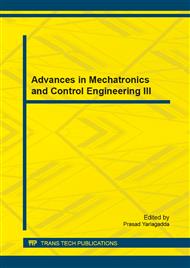p.452
p.456
p.461
p.468
p.473
p.477
p.482
p.487
p.497
Barriers and Benefits in the Adoption of E-Government in China
Abstract:
The benefits of e-government depend on the number of citizens who take advantage of them. The purpose of this research study was to determine barriers to e-government use as perceived by citizens at the municipal level in China , The findings of this study show that, government leaders should work on increasing Internet access, usability of their e-government applications, trust in the Internet, and trust in the perceived capability of their agencies to conduct online transactions securely.
Info:
Periodical:
Pages:
473-476
DOI:
Citation:
Online since:
October 2014
Authors:
Keywords:
Price:
Сopyright:
© 2014 Trans Tech Publications Ltd. All Rights Reserved
Share:
Citation:


